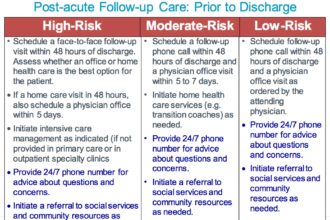This is something that is long over due. With all the mergers and acquisitions that have occurred in the last 2 years, the companies are not the same in structure and subsidiaries as they were just a few years ago. Not only do we have subsidiaries putting money to the bottom line profits, but they also aggregate and mine data for even additional business intelligence to predict. Years ago a corporate structure would buy a company and it would still exist on it’s own and still function like it had BUT NO MORE. WE ARE LIVING IN THE DATA ANALYSIS BUSINESS AGE TO WHERE MINING AND USING DATA AGGREGATED MEANS PROFIT. As an example you may have one subsidiary processing claims to which there are transaction fees, which make money so there’s no incentive to look for fraud as all claims pay fees, good ones and fraudulent claims. This contractor, an insurance company also monitors the MD incentive payments for doctors, a WellPoint company. Usually the software used for anti fraud comes from subsidiaries of commercial insurance companies like Ingenix, a subsidiary of United Health Group and I’m sure their software is in the mix here too, so more transaction profits for those folks. The government does not have the resources or infrastructure, like these large insurance companies. And yes, big companies use private insurers to administer the insurance plans. Some hold claims and make interest money too. So how can a “for profit” company who’s #1 loyalty is to shareholders provide a non-bias picture? Certainly from the technology side they have spent time and money creating the very complicated and substantial algorithmic codes to “score” and look for signs of fraud via claim processing, but remember there are algorithmic codes for profit that fit in here too. Companies also makes a ton of revenue selling your medication records for underwriting, so by seeing if you are for example taking Lipitor, the underwriter might interpret your risk factor as being higher as this medication indicates you may have some cholesterol issues, right? Why else would you be taking the medication, again connecting dots for dollars. There are other companies that provide such anti fraud services, and a few have been purchased by Ingenix, so kind of the same stuff we are looking at as far as fair competition here with insurance and we know there will be more mergers and acquisitions to come. The contractors provide a service of processing claims and out of this transaction fees are generated, paid to a software company that looks for potential fraud, accuracy in coding and many more. Some of these companies are also owned by insurance companies so there’s a potential double dip here with getting both money from the contract and transaction fees on each claim. Again we also come back around to the data once more and how subsidiary company data is combined with others and we have a big business intelligence data sets. Some venture capitalists have been doing this too with buying many companies and putting all their data together with extreme analysis for profit. Most of the fraud that is caught today is done by the government and they are now getting their own data to analyze as CMS is also in the process of establishing their own “in house” IT infrastructure being built, also contracted. Has anyone heard of Blue Cross Intelligence? It exists and the other companies have their intelligence operations too that analyze and crunch data for algorithmic decision making processes for profit. Again, with all the mergers and acquisitions the insurers are not quite what they used to be as far as what we recognize as how they operate and what lines of business they are in today. BD
(Reuters) – Democratic senators on Tuesday expressed concern that companies hired to help pay and oversee medical claims under the Medicare health insurance program may have costly conflicts of interest. Subsidiaries of WellPoint Inc, Hewlett Packard Co’s EDS Corp., now called HP Enterprise Services, and other companies have “numerous relationships” that raise concern, the lawmakers’ staff wrote in memo released on Tuesday. Congressional staffers said they looked at those and several other Medicare contractors that the government has hired to monitor the bills that doctors and other healthcare providers send the government after treating Medicare patients. The staffers found that some companies had “clear financial relationships” such as being a subsidiary of another company charged with actually paying out a claim and processing it, according to the memo.







